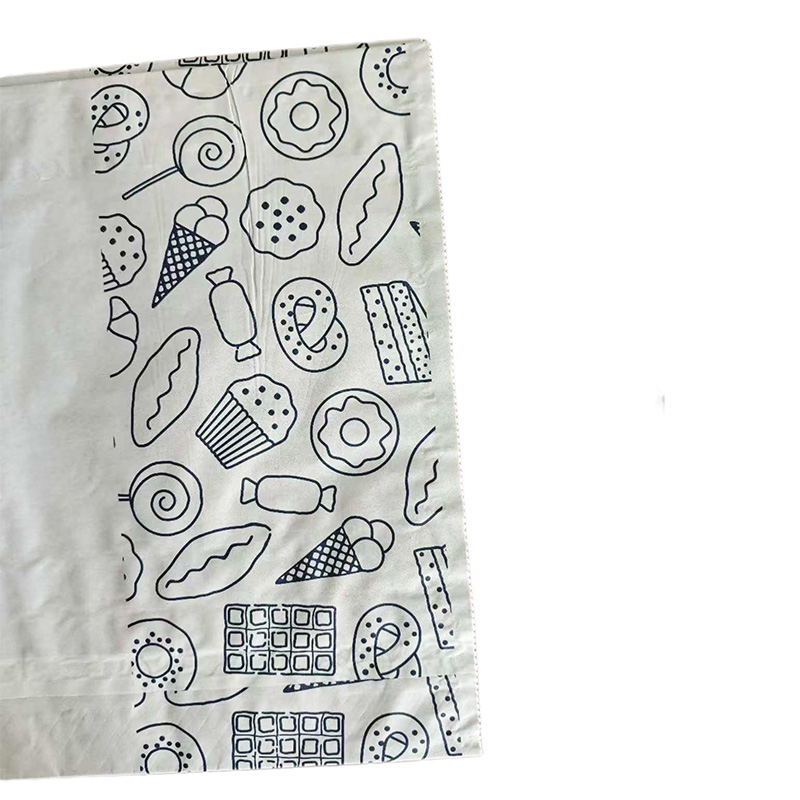Valve bags play a significant role in the cement and construction industries, offering efficient solutions for packaging, transporting, and storing bulk materials. As construction projects continue to grow globally, the demand for durable and reliable packaging solutions has also increased. Among these, valve bags have become a common choice due to their practicality, strength, and ability to maintain material integrity during handling and shipment.

Valve bags are designed with a self-closing valve that allows automatic filling, reducing manual labor and improving production efficiency. These bags are widely used for cement, concrete mixes, sand, and other construction-related powders. By reducing spillage and dust generation, valve bags help maintain cleaner production and storage environments, which is crucial for both safety and environmental standards.
In recent years, there has been a noticeable shift toward sustainable packaging materials within the construction sector. Woven packaging has gained popularity because of its durability, reusability, and capacity to carry heavy loads without tearing. Woven materials provide added strength compared to traditional paper bags, making them suitable for transporting cement and other bulk construction materials over long distances. The versatility of woven packaging allows it to be used in different environmental conditions, from humid coastal areas to dry inland regions, without compromising the quality of the packaged materials.
Eco-friendly food packaging bags, although primarily used in the food industry, have influenced the construction packaging sector in terms of sustainability. Companies are now exploring biodegradable coatings, recyclable materials, and reduced plastic content in valve bags to align with environmental regulations. While the application of eco-friendly food packaging bags focuses on consumables, the underlying principles of reduced environmental impact, durability, and material safety are being adapted to industrial uses. For cement and construction industries, incorporating eco-friendly approaches in packaging helps reduce waste and supports broader sustainability goals.
Paper valve bags remain a widely used option for cement packaging due to their simplicity, cost-effectiveness, and adequate protection for dry bulk materials. These bags typically consist of multiple layers of high-quality paper, sometimes combined with a thin plastic or polyethylene lining to enhance moisture resistance. Paper valve bags offer a balance of affordability and performance, making them suitable for both small and large-scale construction operations. In addition, paper valve bags can be printed with branding or product information, providing an efficient way to communicate handling instructions or safety guidelines to distributors and end-users.
Combining the advantages of woven packaging and paper valve bags allows manufacturers to provide solutions that cater to different segments of the construction industry. For example, heavier bulk materials may require woven bags for added strength, while standard cement deliveries often utilize paper valve bags for cost-effective storage and transport. The adaptability of valve bags ensures that construction projects, regardless of scale, have access to reliable packaging solutions that maintain material quality and reduce handling difficulties.
Furthermore, integrating eco-friendly considerations into the design of valve bags has encouraged innovation in material selection and production processes. Manufacturers are experimenting with biodegradable coatings, recycled fibers, and renewable materials to lessen environmental impact while retaining structural integrity. These initiatives not only benefit the environment but also meet growing regulatory requirements and the expectations of environmentally conscious customers.
Valve bags in the cement and construction industries demonstrate a combination of practicality, efficiency, and sustainability. Woven packaging provides strength and reusability, paper valve bags offer cost-effective and protective storage, and eco-friendly food packaging bags inspire environmentally responsible innovations. By leveraging these options, the construction sector can ensure safe transport, maintain material quality, and contribute to sustainable development. The evolving focus on both performance and environmental responsibility highlights the ongoing importance of valve bags as an essential component of modern industrial packaging.


 English
English Español
Español عربى
عربى
